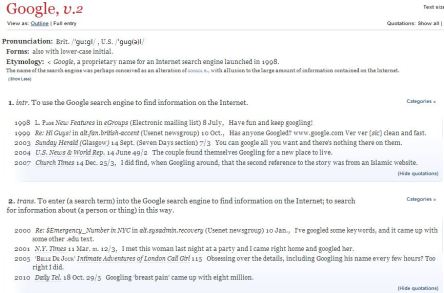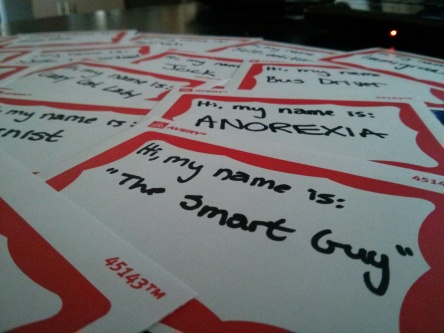So a few nights ago I was watching TED talks before bed (#nerdlife) and there was a really interesting talk by Ray Kurzweil who talked about the evolution of the human brain. In his talk he talked about how as Google moves towards more and more intelligent searching and our technologies for imaging the brain become more and more advanced, we will move towards adding these neurotechnologies to our brain so that one day we will truly have an infinite source of knowledge by inserting nanobots into our brain that connect to a cloud service.
Ultimate point – we will put Google in our brain.
And Google will learn to understand what webpages are saying. So when we ask Google it won’t bring up search results, it will have read and can deliver responses to complex questions (it can already tell you the answers to a large number of simple questions, and yet can’t tell me why the chicken crossed the road).
And I thought oh good God.
I mean can we just go back to Google – who already knows far too much about my existence thanks to my laziness with telling it not to track me – being in my brain and possibly searching based on my thoughts.
My mind will be Google’s.
Google already owns my digital data. It’s like the Miranda Rights of the internet. “Anything you search or post can be used to sell things to you. If you do not want us to do this, too bad. Do you understand these rights?”
But Google may one day have access to my subconscious thoughts?! Google will own my consciousness. Which means Google will own me?
Remind me to opt out of this nanobot thing. I would rather be the dumb old lady.
But this all got me thinking about what this means for the human species.

Google was added to the dictionary in 2006. True Story. It replaced a previous definition from 1907 that had something to do with cricket (the sport not the insect)…
The big thing for me is that it already kind of bothers me, is that we live in a “Google it” world. And in full disclosure of my hypocrisy, I was overjoyed when they updated Google Now so that Google checked for my responses. (Hallelujah I don’t have to hit send anymore when I tell Google to text people! She ASKS me if I want to send the message and then turns the mike back on.) When my mom asks me what she should wear, I ask Google what the weather is. She commented “I wonder if it’ll be nice in Ottawa this weekend…” and I asked Google. Before I leave the house, Google tells me how long it will take to get to work. Google knows my habits, my appointments, my interests and concerns. And it’s terrifying.
But back to the issues at hand:
- To be useful, Google needs to know our needs. Like how Google noticed that I had a recurring appointment every Tuesday and started automatically giving me departure times and directions. So Google needs full access. It needs to know everything about us to know what we would need. If Google is in our brain, how do we clear browser history?
If Google knows everything about our existence, then the access to our thoughts thing that I feared a few weeks ago when I talked about Mark Zuckerburg’s outrageous claim that one day our thoughts would be uploaded to Facebook, might actually be something we should be concerned about - If we all have access to this vast array of knowledge – what does this mean about experts and intelligence tests? No one likes a know-it-all. And knowing and understanding are two vastly different concepts.
So Issue #1A: By wanting to know it all, are we essentially exposing every fiber of our existence to the world? Are we uploading our private thoughts to the internet in a quest for unlimited knowledge and smooth, hands-free access to the knowledge contained in the internet?
Issue #1B: We’re creepy enough with the internet as is… I think this may allow us to hit creepy level 1000. What happened to getting to know someone the old fashioned way?
Issue #2: Are we going to be smarter? Or dumber with more declarative/factual knowledge?
Potential bonus: If Google indeed monitors our consciousness, perhaps this technology could be used to flag individuals in need of mental health aid – for example, if Google noticed cognitive markers for an eating disorder or noticed that you were suicidal, perhaps Google could connect you to services or at least make recommendations. But this may not be enough – telling someone they have depression won’t make them get help, so at what point does Google become responsible for safeguarding our lives and sanity, and at what point is it reasonable to breach the privacy of the human mind?
But I mean the real question on everyone’s mind I’m sure (no pun intended) is will this be like smart phones and we’ll just use these nanobots to search more pictures of cats. Pictures that can be uploaded directly to our visual cortex?















